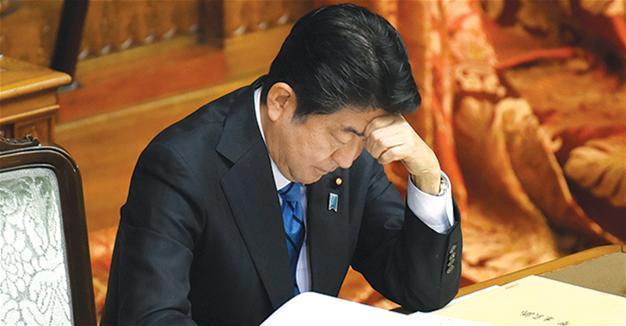TPP nations seek to salvage trade accord after US exit

AFP photo
Australia and New Zealand said on Jan. 24 they hope to salvage the Trans-Pacific Partnership (TPP) by encouraging China and other Asian nations to join the trade pact after U.S. President Donald Trump kept his promise to pull out of the accord.The TPP, which the United States had signed but not ratified, was a pillar of former U.S. President Barack Obama’s pivot to Asia. Japanese Prime Minister Shinzo Abe has touted it as an engine of economic reform, as well as a counter-weight to a rising China, which is not a TPP member.
Fulfilling a campaign pledge, Trump signed an executive order in the Oval Office on Monday pulling the United States out of the 2015 TPP agreement and distancing the United States from its Asian allies.
Australian Prime Minister Malcolm Turnbull said he had held discussions with Abe, New Zealand Prime Minister Bill English and Singaporean Prime Minister Lee Hsien Loong overnight about the possibility of proceeding with the TPP without the United States.
“Losing the United States from the TPP is a big loss, there is no question about that,” Turnbull told reporters in Canberra on Tuesday. “But we are not about to walk away ... certainly there is potential for China to join the TPP.”
Obama framed TPP without China in an effort to write Asia’s trade rules before Beijing could, establishing U.S. economic leadership in the region as part of his “pivot to Asia.”
China has proposed a counter pact, the Free Trade Area of the Asia Pacific (FTAAP) and has championed the Southeast Asian-backed Regional Comprehensive Economic Partnership (RCEP).
Meetings planned
New Zealand’s English said the United States was ceding influence to China and the region’s focus could switch to alternative trade deals.
“We’ve got this RCEP agreement with Southeast Asia, which up until now has been on a bit of a slow burn but we might find the political will for that to pick up if TPP isn’t going to proceed,” English said.
Malaysia’s trade minister said negotiators from the remaining TPP countries would be in “constant communication” to decide the best way forward.
“Notwithstanding the current position of the new U.S. Administration on (TPP), we will continue to engage with our American colleagues to strengthen our bilateral trade and economic relations, given the U.S.’s importance as our third largest trading partner and a major source of investment,” Mustapa Mohamed said in a statement.
The TTP, which has been five years in the making, requires ratification by at least six countries accounting for 85 percent of the combined gross domestic product of the member nations.
Australia held open the possibility of China, the world’s top exporter, joining a revised deal.
“The original architecture was to enable other countries to join,” Australian Trade Minister Steven Ciobo told the Australian Broadcasting Corporation on Jan. 24.
“Certainly I know that Indonesia has expressed interest and there would be scope for China if we are able to reformulate it.”
Japan has led the push for the partnership, which also includes Brunei, Canada, Chile, Malaysia, Mexico, Peru and Vietnam.
“There is no change to our view that free trade is the source of economic growth,” Japanese Economy Minister Nobuteru Ishihara told reporters.
Japanese Deputy Chief Cabinet Secretary Koichi Hagiuda said separately that Japan was not considering moves with other TPP members based on a lack of U.S. involvement.
“As Prime Minister Abe has made clear, TPP without the United States is meaningless and the balance of interests would crumble,” he told a news conference, adding Tokyo would keep explaining the benefits of the pact for America.
Trump took office as the 45th president of the United States on Friday and pledged to end what he called an “American carnage” of rusted factories and crime.
He vowed to bring jobs back by renegotiating what he called bad multilateral trade deals in favour of bilateral deals.
New Zealand Trade Minister Todd McClay said he had talked with a number of TPP-member ministers at the World Economic Forum in Davos last week and he expected they would meet over the coming months.
















